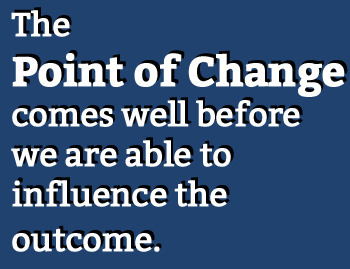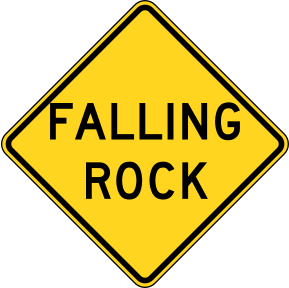Melissa Anzman's Blog, page 4
June 3, 2013
Social Media is Killing Your Job Prospects
 It happens every day. Someone in my Twitter feed or Facebook timeline, does or says something that makes me cringe. Not because they are using foul language (you know to be careful with that, right?), or that they are being overtly inappropriate.
It happens every day. Someone in my Twitter feed or Facebook timeline, does or says something that makes me cringe. Not because they are using foul language (you know to be careful with that, right?), or that they are being overtly inappropriate.
But because they are being a whiny, pain the butt.
I am not going to lie and say I understand how people lose perspective and download their thoughts about the world without considering the impact before doing so. Maybe I’m old, or old school, or just overly paranoid. As they say, once it’s out there – it’s out there.
As an HR professional (and any recruiter and hiring manager with a brain), I will be checking these accounts before making an offer. There is no exception.
I’ll use a real life example – so you can see what I’m talking about. I have a real life friend (let’s call him Bob) who is actively seeking a new job. Not overtly, but he’s definitely ready to move on to what’s next. As a person, he’s a hard worker, easy to get along with, doesn’t rock the boat, and delivers slightly above average – a good employee.
But when you look at his Twitter feed, for the love of Nancy, he’s a hot freaking mess! He is always complaining about everything, updating unnecessary information, bitching and moaning about the most minute things around him. When he’s not complaining, he’s judgmental and critical about his current job.
I’m pretty sure he has no clue that he comes across this way – but he does. As a perspective employer, I wouldn’t touch him with a 10-foot pole!
Why? If I didn’t know him personally, I would have the impression that he’s a “difficult” employee – always complaining, impossible to manage because of his whining, never content, not a high-performer, doesn’t get along well with others, and so on.
It’s time to gut-check your social media updates people! I know when you post you aren’t thinking about impact or potential employers or your overall “mood.” But you need to.
Bob has been interviewed many times and has yet to get past the first in-person interview. You know, the sweet spot when they decide if you know what you’re talking about, if you’re a fit with the company, and if they’d want to have you on as an employee? The time when the hiring manager will do a search on you before deciding to move forward or not.
He just can’t seem to figure out WHY he’s not being invited back. Ahem, his Twitter feed anyone?
I know that it’s soooo easy to simply post things these days and being active on social media is important. But I implore you – think, before you tweet/post. If you need to complain or whine or be annoying, text a friend. They are still there for that you know? Don’t think that having a private account is enough – it’s not.
Use your brain and stop the virtual stream of consciousness (please). You are severely hurting your chances of being successful in your job hunt – which is exactly the opposite of what you’re working so hard to do. Not to mention inducing eye rolls from your friends (we don’t care to hear it to a mass audience, 100 times a day).
Love what you're reading - want more? Sign-up to work with me one-on-one, and I'll help you get unstuck and fall in love with your job.

May 30, 2013
Practical Tactical Thursday – Get Your Network to Work for You
Landing a job takes a lot of work. So if you’re thinking that you can simply sit at home and submit an online application these days, you are probably getting frustrated with the amount of time it’s taking you to start your next adventure. And if the hundreds of job seekers I speak with every month are any indicator, the phrase, “It’s not what you know, but who you know,” is the mantra these days.
I’ve heard recruiters say that around 75% of the people they hire come from a recommendation – either an employee referral, a previous coworker, or someone within the company’s network. As a reluctant networker myself, those kinds of numbers are a bit hard to swallow.
But you already have a network. It’s time to get them working for you.
It’s scary to reach out to people and ask for help. It can also be another ego blow or sense of “failure” when you need help finding a new job. More than everything else, it can be isolating and lonely during the hunt.
Here’s the good news: your network wants to help you! I promise – they really do. The problem is that you’ve been asking them for help, in the wrong way.
Typical network ask/email request:
Hi Everyone,
I just wanted to let you know that I am no longer with ABC Company and am looking for a new job. It’s a very exciting time for me and I’d love any help that you can provide. Please keep an eye out for any position that you think may be a good fit for me.
Thanks for the help!
Sally Sue
Let’s break this email request down:
Problem 1 : It’s a mass email. I mean really, how many of those do you open and respond to? It’s human nature to want to be personally addressed and acknowledged.
Solution 1 : I know it can be a pain in the butt and it will definitely take more time, but send an email directly to the key influencers within your network. Make each one personal – add a little note about something you’ve talked about before or an inside joke. By personalizing the email, it makes it more of a conversation, than an awkward ask on both sides.
Problem 2: You’re not really telling the reader anything except some fluff. Yes, my non-woo-woo ways may be adding some flavor here, but while this email is concise, it’s not really telling the reader anything. The sentence about it being an exciting time comes across as a bit fake – and perhaps a little sad. Losing a job or needing to find a new one isn’t “exciting” for most people (even if it is for you, consider your audience).
Solution 2: Tell the reader more about what’s going on. No, that doesn’t mean going through your story about why you were fired/laid off/quit, but more about timing, and goals, and what you see as being next for you.
Problem 3: You haven’t asked them to do anything. This is the biggest problem of all – you forgot to ask them to take action. The general assumption is that the “keep an eye out” sentence is enough, but it’s not. It’s still very ambiguous to the reader as to how they can help you; what they can do to connect you; and so on.
Solution 3: You have to make a direct and specific ask. Yes, comfort zone is being stretched here people! But I promise, this works. When someone asks you to do something specific, you know exactly how you can help and what your marching orders are. It’s the same when asking your network for assistance. Be direct, be specific, and make it easy for them to take action.
Problem 4: There’s no way for them to pass information about you along to others. No resume was included, your strengths were discussed, you didn’t have an easy-to-access email/phone number present in the message.
Solution 4: Make it almost brainless for people to connect you. Attach a pdf version of your resume, add your contact information in the email message, format the email as though they could simply hit forward to send along to a contact.
BETTER EMAIL REQUEST:
Hi John,
It’s been awhile since we’ve connected – we have a lot to catch up on! I wanted to reach out to let you know that I am currently back on the job market seeking a director-level position in Social Media Marketing.
After five years at ABC Company, I am confident that my skills and experience will be an asset to small-to-mid-size companies, like the one you’re at. I didn’t see any current openings at your company that meet my background, but I would love your assistance in helping me connect with the VP in the group so I can set-up an informational interview. Are you able to pass my resume along and make the introduction? If they’d rather reach out directly, please feel free to send along my contact info – email: sally @ email.com or 555-867-5309.
I really appreciate any guidance or assistance you are able to provide – please let me know when you’re free for coffee to catch up (on me, of course!).
Best,
Sally Sue
In this example, it’s clear what John is being asked to do, he knows exactly what success looks like, he feels appreciated and acknowledged, and he can then make the decision to connect you or not to the VP, or even think of other people or positions that may come across his desk, specifically within what you are looking for.
Do you have a friend (or colleague) that’s struggling with leveraging their network?
Use this link and send them this template.
Love what you're reading - want more? Sign-up to work with me one-on-one, and I'll help you get unstuck and fall in love with your job.

May 28, 2013
New on LAC: Dream Job Drama
Throughout our career, we are constantly searching for our “dream job.” That one perfect position that will make us gloriously happy and eager to show up to work every day, make a difference in the world, and earn well over six-figures doing it. The elusive golden ticket of our career.
It never fails that once we find that “dream job,” drama ensues.
Like a popped balloon, the disappointment of your dream being not as perfect as you thought it would be, is deflating. But alas, it’s not time to start dreaming up another job – you can save the one you’re already in.
Get to the root of it.
Figure out what went wrong and immediately prevent it from happening again. Usually our vision is shattered by an event, an action, a word, a new project – something. Evaluate what cause your dream to turn into a mini-nightmare.
For example, I thought I was in my dream job when I ended up having to cut out circles on my office floor. That was the catalyst of drama for me – feeling like I was missing out on adding value and interacting with interesting coworkers.
What happened to change your perspective about the situation?
Get back to reality.
Your job probably wasn’t that dreamy to begin with – not in reality. So go back to the job description, go back to what attracted you to the position in the first place, and start figuring out what got you excited in the first place.
Keep reading to learn all of the ways to combat your dream job drama.
Love what you're reading - want more? Sign-up to work with me one-on-one, and I'll help you get unstuck and fall in love with your job.

May 24, 2013
Success Measurements and Age
 I’ve been thinking about age quite a bit recently. Maybe because I found my first gray hair a few weeks back, or perhaps it’s because I attended my first meeting where there was a younger person in the room. Regardless, age has been a constant measuring stick throughout my career.
I’ve been thinking about age quite a bit recently. Maybe because I found my first gray hair a few weeks back, or perhaps it’s because I attended my first meeting where there was a younger person in the room. Regardless, age has been a constant measuring stick throughout my career.
When I became a manager at 24, I was proud that not only was I moving up the ladder, but I was the youngest manager the company had ever had. That was a major point of contention when telling my friends about it; my friends who were the same age as I was in “lower” titled jobs (ugh, how snobby does that sound now?). My measuring stick remained – through every career change, promotion, and company.
Was I keeping up with (who are we kidding – in front of), my peer group?
I was in constant compare and conquer mode. It didn’t stop at work. I used to look at my age-group “peers” who were famous – singers, actors, and so on. They seemed so much more successful than me – I’d often think, “I can’t believe how much they’ve accomplished by (enter age). Why can’t I do that?”
I became ruthless in my career – even more so than before. I was at work to work hard and move up the ladder, make more money, get more recognition, and climb baby. Not that that’s always a bad thing, my motives were rooted in being better than someone else. Not necessarily because I wanted it.
This comparison bug is impacting your career’s success and your business. It may be not be as overt for you as it was for (ok, it still is for me in certain aspects of my life), but if you’ve ever looked at someone else’s career and thought that they were more successful or achieved more, then you’re heading towards the comparison zone.
Age does not determine success. Success doesn’t have the same definition for everyone.
What someone else is able to accomplish by 25 isn’t comparable to what you are able to accomplish by the same point in time. I thought by leaving the corporate world, that I would stop looking to others as a gauge of my own success.
I still do get a twinge of wonder when I hear about a friend getting promoted, especially when it’s a title that surpasses the ones I’ve had. When I hear about someone building a wildly successful business or blog in a short amount of time, I get frustrated with myself and start looking for things that I’m doing wrong.
My guess is that this comparison bug is something within me (you too?) that doesn’t go away, not really. But instead, we need to look at the complete picture of our lives. I may have had a big title and made a lot of money at a young age, but I missed out on a lot too – I didn’t have a lot of friends at the time, I didn’t have a particularly awesome social life, and I wasn’t close to my family.
Achievement is driven from something. Perhaps this is a reminder that we have the power to choose what drives us all – particularly when it comes to your career.
Are you playing the comparison game?
Love what you're reading - want more? Sign-up to work with me one-on-one, and I'll help you get unstuck and fall in love with your job.

May 20, 2013
Point of Change
 We’ve all experienced it – a moment in time, a certain action, reaction, consequence, or outcome that brings us sudden clarity. The point of change. For whatever reason, your perspective is forever changed and you cannot “un-know” something that you now see so clearly.
We’ve all experienced it – a moment in time, a certain action, reaction, consequence, or outcome that brings us sudden clarity. The point of change. For whatever reason, your perspective is forever changed and you cannot “un-know” something that you now see so clearly.
I remember a very specific tipping point for me in each of the jobs I’ve left. Some were poignant, and others were subtle. The most memorable being when I quit my resident director job in college during the biggest holiday weekend, without notice and without a place to live. I was taking a stand – reacting to a decision I didn’t approve of. (I was young).
In another role, I was on the floor cutting out circles to create a representation of what world clocks would look like in the hallway (as a manager in HR/Employee Communications), when the CEO walked past my office asking what the heck I was doing. That was my turning point for that position – I remember thinking, “What the heck am I doing? How is this leveraging my talents, my skills, my brain?”
From that moment on, I couldn’t reengage. I was miserable. I hated my boss, the employees were getting on my nerves, I refused to work outside of normal office hours, and the search for a new position was on.
The point of change comes well before we are able to influence the outcome.
When you find clarity about your job, your boss, your career, or your life direction – it’s hard to just sit back and do nothing. It’s like a shining light finally comes through the clouds and all you can see from that point forward, is your new perspective.
So misery typically ensues. But you can influence that. You can work through it and move on – without internal combustion (or a dramatic exit).
Your perspective shifted, why? Things were probably fine or at least concealed, yesterday. What happened to shift your perspective? What changed in your environment, your daily interactions, your expectations and responsibilities, that allowed you to see your situation in a new light?
Most of us wouldn’t even notice the little thing that changed, allowing us a new perspective. But something had to have changed – and it’s more than your boss had a bad day. What changed in you to help you come to this revelation?
Are your priorities and values still the same, and if so, are you honoring them? Get back to the basics – revisit your personal balance scale and see if anything has changed, and if you are still balanced. These tend to change over time, especially when life throws us big curveballs or events, so check-in with yourself a few times a year.
Is it worth it in the long run? This is when the emotion needs to be stripped away from the discussion. From my examples above, the answers would have been different – the position in college, it wasn’t worth my frustration to stay. The position with the clocks – was worth struggling and then overcoming the situation. Unfortunately I realized that well after the fact, and that decision did come back to haunt me at one point.
Be critical here – can you stick it out, versus would you prefer not to? Pro/Con list it if the answer isn’t clear.
Regardless, you have to maintain your work persona. No matter what your reflection, decision, or change point is – you have to remain who you are at work. Stay engaged as best as you can. I know it’s hard and you won’t be at 100%, but try and get to 75% – don’t back down to 0% like I did. Stay connected with your purpose and why you accepted the position in the first place.
Your point of change will help you understand who you are – and provide you with new opportunities and challenges. It’s not always a negative thing, nor is it always positive – but it will always move you forward.
Have you experienced a point of change at work? I’d love to hear your “clock” stories in the comments below.
Love what you're reading - want more? Sign-up to work with me one-on-one, and I'll help you get unstuck and fall in love with your job.

May 16, 2013
Practical Tactical Thursday – Apply, Apply, and Apply Again
 This must be a hot topic these days, as I’ve received the same question three times this week.
This must be a hot topic these days, as I’ve received the same question three times this week.
A position I applied for is reposted. Should I apply for it again?
Before I answer the $64,000 question, let’s breakdown the reasons why a position has been reposted.
They were unable to secure their first choice candidate during the first round of interviews and they didn’t want to “settle” for the second choice.
They weren’t able to find any qualified candidates during the first search and need to expand their candidate pool.
Funding for the position was lost and then reallocated.
The position details have been updated to more accurately reflect the current opening.
The hiring manager is indecisive and cannot choose someone to fill the opening.
Because they felt like it.
 Just making sure you’re still with me here…
Just making sure you’re still with me here…Missing from the list that always comes up is that it has something to do with you, personally. It doesn’t – you aren’t in their sphere of influence (yet).
Obviously the position isn’t going to post with their reasoning, so it’s hard to tell why a position is reposted. But the reason itself is irrelevant (unless you know for sure that the manager is indecisive – if that’s the case, RUN).
When to Reapply for a Position
You have not yet gone through the interview process.
In other words, when you applied the first time, you did not receive an interview request. If you participated in the interview process in any way at all, you will not be reconsidered for the position. So don’t waste your time reapplying. You were determined to not be a fit, so it’s time to move on.
Yep, that’s when you can reapply. There is only ONE restriction of when it’s inappropriate to reapply. For the majority of reposted positions, this means you should reapply!
But before you do…
You weren’t chosen the first time around, so if you do the same thing again with your application process, you will be overlooked again. It makes absolutely no sense to send along the same resume and cover letter and not follow-up, if that method/process didn’t work for you before.
Change it up! When you reapply, update and tweak your resume to be a better match the position’s posting and follow-up. Here’s some guidance on how. Either way, don’t simply repeat the same thing that didn’t work for you the first time around – make an impact and deliver a better package.
But won’t they laugh/scoff at me for applying again?
Nope, they don’t really care or “keep track” of those things. Let me clarify – they may or may not recognize your name if you apply again, but they aren’t judging you for “being silly enough to apply again.”
If you are applying via an online application software program (think: most big companies), then they would have a record of you applying twice. But the recruiter won’t typically count you out because of it. And you increase those odds of being considered by making a personal connection.
Overall Lesson
It’s extremely difficult for recruiters or hiring managers to individually go through every single application and resume – although they try their best, they are human. Which means that it provides you with another opportunity to make an impression on them when the position is reposted.
One strike does not mean you’re out!
I’d love to hear about your experiences in the comments below. Have you reapplied for a position and then been considered a candidate or get an offer?
Love what you're reading - want more? Sign-up to work with me one-on-one, and I'll help you get unstuck and fall in love with your job.

May 13, 2013
Heeding the Warning Signs
This past week has been a (recurring) lesson in paying attention to the signs around me. It made me think back to the many clients and employee’s I’ve worked with over the years, who have simply ignored the warnings their manager had given them about their achievement standards.
But first, here’s how I re-learned this lesson.
1. Falling Rocks

If you have driven in the mountains or an otherwise unstable area, you have probably seen this sign. Like many of you, I became desensitized to the inherent warning – rocks can fall down the mountain. Growing up in Colorado, it’s something you see every five miles or so in the mountains, so these signs are easy to overlook. That was my excuse. And then this happened:
While rare, there is a reason drivers are warned about the possibility of rocks encroaching on the roadway. I missed this rock slide by about a minute, but I can tell you, that was close enough.
2. Hackers want to hack
A few weeks ago I saw this blog post in various iterations, that WordPress accounts were being hacked at alarming rates. Particularly those with an admin login (which I have – by design). I usually ignore these types of things because I trust my password (stupid – especially after reading this Wired article about it), and don’t think that anyone would really want to hack my site.
For some odd reason, I did change my password after reading everyone’s warnings, and… let’s just say thank goodness.
I received this ball of joy:

Whoa. So, someone attempted to hack me (SIXTEEN times), and was unsuccessful. Don’t think I didn’t change all of my password settings to Fort Knox status. Luck kept me from being fully hacked this time – I definitely will heed these lessons going forward.
Getting the Warnings at Work
My week aside, people miss feedback and lessons all of the time, throughout their career… which is why HR tends to create a long-period of “performance improvement” time before taking action of any sort. The manager usually walks into those conversations saying that they have delivered the feedback various times, while the employee is completely blindsided by the feedback.
Both scenarios can’t be true. But because delivering difficult feedback and having crucial conversations is not high on most people’s “love to do” list, the message tends to come out bungled and the employee misses the point. So here are a few subtle hints to listen to going forward…
You’re not getting the cool projects. For whatever reason, you used to be responsible for highly visible or innovative projects… and now you aren’t being asked to lead them. Your boss may present it as an opportunity for your colleagues to shine – to share the wealth so to speak, but don’t be fooled. If one project gets passed off to a colleague, if you were a rock star, they would replace it with an ever cooler project.
Your boss has requested to be “more in the loop” or receive more updates. Either you dropped the ball somewhere, or pressure is coming from above to have a better read on what’s going on. Regardless, you have lost some of your cache of dependability and deliverability, if more info is needed.
Your merit increase and/or bonus decreases. Yes it’s a slow economy, and yes you can’t have a fabulous year every year. But if you see a trend of being considered an outstanding performer to average, warning bells should be ringing. Whether your performance has decreased or your perceived value to the organization has decreased, either way it’s not a good sign.
You haven’t been promoted and it’s been five years. While I don’t believe in a specific time frame before promotion, in fact, I’m ardently against that, but if you have been in the same role without any movement for four or five years and you want to be promoted, something isn’t working. You aren’t delivering at the level needed or your work persona is hurting you.
The feedback you receive is middle-of-the-road. If you aren’t receiving impactful and helpful feedback from your boss, you aren’t being memorable enough. Without specific feedback – good or bad, you will not be able to push through the top performance. Start making an impact and requesting specific notes/examples from your boss so you are able to continue to tweak your performance throughout the year.
Your hours are being watched. For most people in a salaried position, there are general guidelines about when you show up and leave work, but they don’t tend to be 100% strict. If your boss starts mentioning that you aren’t staying late enough, or you need to start working more hours, you need to read more into that message. Essentially that means that you aren’t delivering the quality and quantity of work expected of you during “business hours” and/or your performance is not aligned with that of your colleagues. Pick up the pace – this isn’t about actual time worked, but about your delivery and capacity levels.
I’d love to hear from you in the comments below. Have you ignored any signs, later to figure out they were there all of the time?
Love what you're reading - want more? Sign-up to work with me one-on-one, and I'll help you get unstuck and fall in love with your job.

May 9, 2013
6 Rules for Starting Over from Anywhere
 I have moved a lot – don’t believe me, check out my Vizify profile. When asked why I move so much, I often give a generic answer along the lines of, “Work moved me,” or “I am a commitment phobe.” While both of those answers are true, it’s not at the core of why I like to move around so much.
I have moved a lot – don’t believe me, check out my Vizify profile. When asked why I move so much, I often give a generic answer along the lines of, “Work moved me,” or “I am a commitment phobe.” While both of those answers are true, it’s not at the core of why I like to move around so much.
A New Location = A New Start
I’m a visual person, a homebody, and an introvert at my core. So for me, my home is an important part of being comfortable in my skin as well as my success. As crazy as it may seem, looking back at my various moves, the one thing that they all had in common was I was seeking a new start.
Changing my surroundings has always allowed me to change my perspective and actions. I would get into a pattern or a rut while living in one location, and want to change something… but would be stuck in analysis paralysis until I made a location-move. For those of you who hate change, own homes, or love being deeply entrenched in your community – this probably sounds insane.
I agree – it’s kinda kooky. But it’s worked for me.
Some examples:
I was really overweight (morbidly obese) nearing the end of my time in New York. I just couldn’t activate the eat right/workout more muscles. I moved to San Diego and worked my butt off – lost the weight, and created a different lifestyle.
I wanted to start my own business, but couldn’t seem to get out of the rat race while living in the Bay Area. I moved to Atlanta to focus on going out on my own, and was able to make it successful after failing at it in California.
I needed to take this summer to focus on writing and growing. I didn’t feel like I could do that in my “launch pad” apartment in Atlanta. So I’m hanging out in the Rocky Mountains instead.
For those of you who can’t (or like a more sane person – don’t want to), move across the country or into a new house to start over or start something, you can do it from where you are right.
6 Rules for “Starting Over” Wherever You Are
1. Set a start date or “move” date.
For me, the date of the change has always been the most motivating factor. When I know that I am going to be in a new location by a specific date, it propels me forward like nothing else in the world. For some reason, knowing when you will be starting, takes away any possible excuses.
2. Create your prepare list before your start date.
We often get in our own way by making things SO BIG that we don’t know where to start. So get all of the preparedness items ready and listed before your date.
What are your big goals for the new start? Where are you today and what does success look like at the end? What materials do you need to have on-hand for the “move?” Essentially, create your plan well in advance before you need to start to take action.
3. Take it seriously.
If you were moving cities and forgot to pack your stuff, you’d be in a bind when the movers arrived. Same concept, smaller scale. Take your start date seriously – and give it the levity it deserves. If you need some extra accountability, tell a friend about your “move.”
4. Set baby milestones.
You can dream big– but create action-items that are small. Break down your bigger goal into baby milestones to start making progress. “Rome wasn’t built in a day,” is annoying, but true. Set at least one or two milestones that you can achieve during your first week – yes, that easy.
5. Change your surroundings.
No, this isn’t a trick post – I am not saying you have to move after all; however, you should definitely change your surroundings. If you tend to work in one area of your house, try a different location. If you’ve stared at the same picture for years, change it. If you absolutely cannot work at home, try a local place.
Changing the smallest thing in your surrounding can greatly change your perspective. In my place in Atlanta, I was stuck with a few ideas and stewed on them for awhile. I decided to put up some of my own black and white photography pics, and my productivity increased ten-fold.
Why? Because I was beyond giddy at seeing something that made me smile as I walked up the stairs to my office. It didn’t cost me anything other than time (and a lot of picture nails), but it jazzed me up at the start and end of each day.
6. Allow yourself to move forward.
Nothing else you do will make a difference if you aren’t able to give yourself permission to start. To move forward and explore – even if you aren’t yet ready to achieve. A fresh start can come in so many different ways – let yourself create your own “move” and start over on your own terms.
Love what you're reading - want more? Sign-up to work with me one-on-one, and I'll help you get unstuck and fall in love with your job.

May 6, 2013
New on LAC: 7 Ways to Be the Youngest Person in the Room
 New today on Life After College – I share with you seven ways to be the youngest person in the room at work, successfully. Learn how to take the “age” conversation off the table, and make an impact from your work.
New today on Life After College – I share with you seven ways to be the youngest person in the room at work, successfully. Learn how to take the “age” conversation off the table, and make an impact from your work.
Genius comes in every age – and I’m guessing that you are one of the smart ones at work. Being one of the smartest employees in the room, and also one of the youngest, can be a frustrating conundrum. You know you have value to add in the conversation, you are qualified to take on a challenge, but your perceived age is stopping others from taking you seriously.
That stops now.
Push Past Your Age and Be Taken Seriously at Work
1. Do your job really, really well.
This probably goes without saying, but unless you are delivering what they are asking at a very high level, nothing you do will change their perception about needing “more time in the job” or maturing. Deliver consistently, exceed expectations at every opportunity you get, and be reliable.
Check out all of my other nuggets to help you succeed and make age nothing but a number, baby.
Love what you're reading - want more? Sign-up to work with me one-on-one, and I'll help you get unstuck and fall in love with your job.

May 2, 2013
Practical Tactical Thursday – Tell Me about Yourself
 It is the dreaded question of many job seekers. Inevitably the recruiter and the hiring manager, and most likely every single person you interview with, is going to ask you… “Tell me a little more about yourself.” Usually it happens at the very beginning of the interview; an ice-breaker per se. How you answer this seemingly innocuous question will set the tone for the rest of the interview.
It is the dreaded question of many job seekers. Inevitably the recruiter and the hiring manager, and most likely every single person you interview with, is going to ask you… “Tell me a little more about yourself.” Usually it happens at the very beginning of the interview; an ice-breaker per se. How you answer this seemingly innocuous question will set the tone for the rest of the interview.
Most of you are answering it incorrectly.
So Really… Tell Me a Little Bit More about Yourself
The natural reaction, after a moment of “oh crap – how do I answer this,” is to talk about things outside of work. I like to ski; I have kids; I went to school at… and so on. {Buzzer Sound} Incorrect my friends.
Even though this isn’t a behavioral interview question, you are still in an interview.
Take every opportunity during the interview to stress your competence in the role. Your focus should always remain on furthering this goal of standing out, showing the interviewee your awesomeness, and being professional.
No one cares that you like to ski, that you have kids, or that you went to school someone you think is cool. I know, that’s harsh – but it’s the truth during an interview.
We want to know what you bring to the table. And this is your opportunity to share with us some insights and information with free-range! No silly parameters around this question, no expected response.
So grab it and highlight exactly the points you want to get across.
For example:
“Absolutely. I launched several HR Communications departments at various Fortune 500 companies – soup-to nuts; I have worked in just about every aspect of Human Resources; and I am passionate about building relationships and partnerships with my clients.”
Of course you can add some color and personal touches, but in the above example, you see that I firmly set the agenda of the interview. I am coming out of the door with my strongest deliverables and milestones. These are the things I want to be known for during an interview setting and they will also make me memorable and stand-out from the other applicants.
Contrast this what you’re currently doing, and the impact is so much greater. Instead of telling me things that happen OUTSIDE of the work environment, you are able to show me what your strengths are – and get the interview moving forward without any awkward pauses or silences.
If this approach seems a bit too concise for you and you’d rather bridge what you’re currently doing with my advice, be sure to stay far, far away from these topics (I promise):
Your kids and family: I wish I could lie and tell you that everyone cares, but unfortunately more times than not, the interviewee will start thinking about the potential time out that you’ll be taking due to your kids, etc. (Harsh, I know).
Saying you like to travel a lot: The first thought is, “how much time is this candidate going to ask off for vacation if he/she is hired?”
Extreme adventure sports: Use this one sparingly and depending upon your audience. It could be a connection point, but it could also be a warning flag of potentially high benefits costs.
Your relationship status: Just don’t say anything – it is illegal for the interviewee to ask about this, so don’t talk about it.
Religious beliefs, sexual orientation, and so on: There is a reason these are protected classes – there are still people out there with prejudices. Don’t open that door.
What do you talk about when you’re asked this question? Have you been going down the wrong rabbit hole?
Love what you're reading - want more? Sign-up to work with me one-on-one, and I'll help you get unstuck and fall in love with your job.





